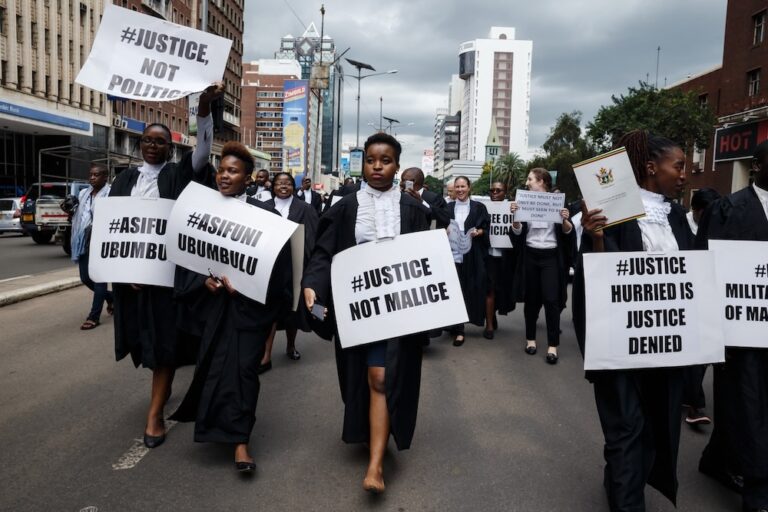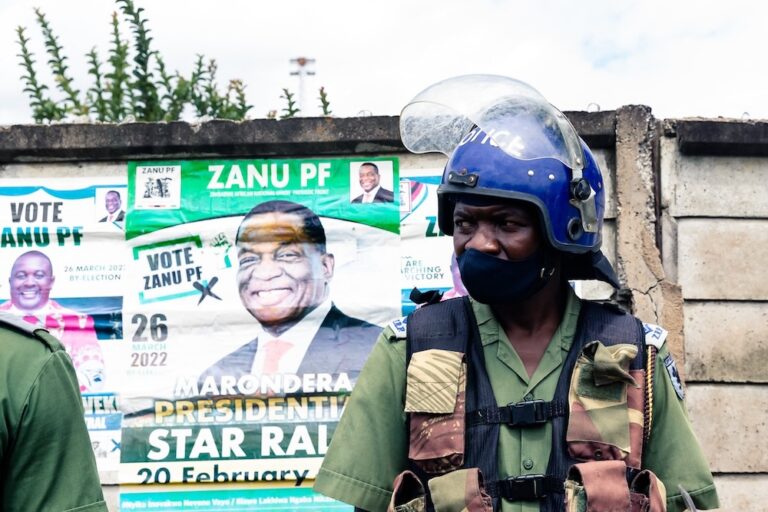(ARTICLE 19/IFEX) – The following is a 5 March 2002 ARTICLE 19 press release: 5 March 2002 For immediate release Government curtails freedom of expression in Zimbabwe ARTICLE 19 has released it latest edition of Censorship News, which covers the current situation in Zimbabwe At a time when most democracies throughout the world are working […]
(ARTICLE 19/IFEX) – The following is a 5 March 2002 ARTICLE 19 press release:
5 March 2002
For immediate release
Government curtails freedom of expression in Zimbabwe
ARTICLE 19 has released it latest edition of Censorship News, which covers the current situation in Zimbabwe
At a time when most democracies throughout the world are working towards promoting freedom of expression, Zimbabwe has since 1999 been going through a series of dramatic constitutional and legislative changes that subsequently undermine freedom of expression.
The past three years have seen the passing of legislation that journalists have described as draconian and aimed at silencing them. Although freedom of expression is enshrined in Section 20 of the Zimbabwe Constitution, Article 9 of the African Charter on Human and Peoples Rights and Article 19 of the Universal Declaration of Human Rights, the government continues to use legislation and other mechanisms that contravene the right to freedom of expression. It is unfortunate that these laws limiting freedom of expression come at a time during which Zimbabweans need freedom of expression most.
John Barker, Head of ARTICLE 19’s Africa Programme said:
“The coming elections demand unfettered access to information in order that citizens can make informed decisions on matters of such great importance to their livelihood. Unfortunately, the opposite has been true in Zimbabwe, which has been passing legislation that actually deprives, not only journalists, but also citizens in general of their freedom of expression.”
The government has also monopolised the public media and has virtually turned it into a mouthpiece of the ruling party. The only time the opposition is mentioned in public media is when it is portrayed in a bad light. This has created a situation where the privately owned media has become so sympathetic to the opposition that it has sometimes been accused of being biased.
Government has responded by imposing legislation that seriously threatens the very survival of freedom of expression.
NOTES:
1. The latest edition of Censorship News is available at www.article19.org


